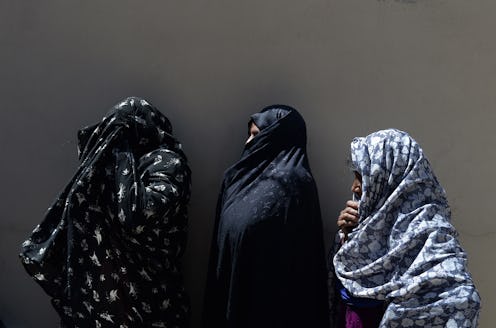News
Amnesty Slams Afghanistan For Abandoning Activists
As Afghan activists struggle to navigate the conservative society, risking their own lives and the lives of their families, an Amnesty report slammed Afghanistan's failure to protect women activists. Despite the "significant gains" that women's rights activists have worked to achieve, the organization said the government has abandoned activists as violence against them increased.
Released Tuesday, the scathing report said that the laws put in place to support champions of women's rights in the country — that included activists, lawyers, journalists, doctors, police and teachers — are poorly enforced by Afghan authorities. It also criticized the international community for turning a blind eye as violence against activists — including threats, sexual assaults and assassinations — continue to mount.
Amnesty International quoted Salil Shetty, the London-based organization's Secretary General, as saying in Kabul during the report's launch:
Women human rights defenders from all walks of life have fought bravely for some significant gains over the past 14 years — many have even paid with their lives. It’s outrageous that Afghan authorities are leaving them to fend for themselves, with their situation more dangerous than ever.
With the troop withdrawal nearly complete, too many in the international community seem happy to sweep Afghanistan under the carpet. We cannot simply abandon this country and those who put their lives on the line for human rights, including women’s rights.
Based on interviews with more than 50 women activists and their families across Afghanistan, the organization found that authorities consistently ignored or refused to act against threats to them. Investigations were scarce; prosecutions and convictions rare. The threats were often made by the Taliban, but government officials, law enforcement and local leaders also carried out abuses against women's activists or were complicit through their failure to punish perpetrators, Amnesty said.
The report was released in the wake of the brutal murder of a woman by an angry mob after she was — falsely — accused of burning the Koran. In a horrifying sequence of events, the 27-year-old was beaten to death, her body was thrown off a roof, run over by a car, and set ablaze. Cellphone footage of the murder showed police authorities doing little to stop the attack. Although women were accustomed to "everyday harassment," the violent incident crossed the line for many, who took to the streets to express their outrage.
Speaking to the Los Angeles Times, Humira Saqib, who published a women's magazine in 2010, recounted how she was forced to flee Afghanistan after receiving threats that culminated in the stabbing of her 10-year-old daughter in Kabul. Saqib told the newspaper that the police were "flippant" and "unhelpful" when she tried to seek their help.
While the international community has poured hundreds of millions of dollars into efforts to support women's rights, Amnesty said that it fell short of focusing on long-term gains and were carried out without consulting local activists. Shetty said:
Afghanistan is facing an uncertain future, and is at arguably the most critical moment in its recent history. Now is not the time for international governments to walk away. The international community must step up with continued engagement and the Afghan government cannot continue to ignore its human rights obligations.
Image: Getty Images (2)
